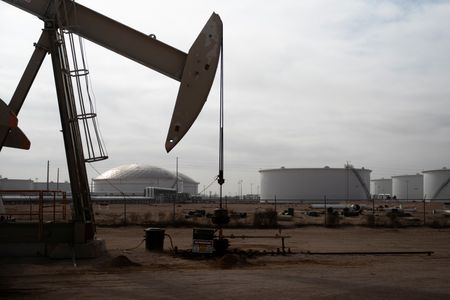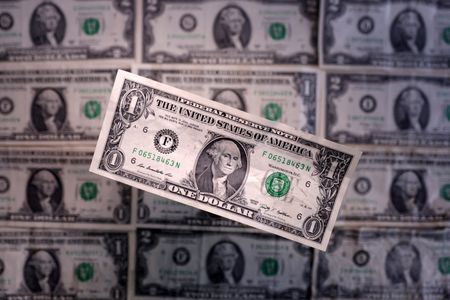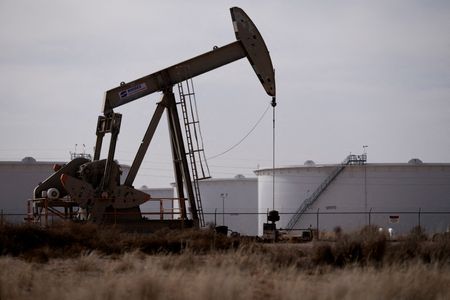By Sam Li and Siyi Liu
(Reuters) -Oil prices fell on Thursday after rising in the previous session as investors weighed expectations for lower U.S. fuel demand with the end of the summer demand season nearing and awaited India’s response to punitive U.S. tariffs.
Brent crude futures dropped 50 cents, or 0.73%, to $67.55 at 0643 GMT, and West Texas Intermediate (WTI) crude futures declined 51 cents, or 0.80%, to $63.64.
Both contracts climbed in the prior session after the U.S. Energy Information Administration reported that U.S. crude inventories fell by 2.4 million barrels in the week ended August 22, compared with analysts’ expectations in a Reuters poll for a 1.9-million-barrel draw.
“Oil prices are pulling back this morning as traders reassess yesterday’s rally driven by the EIA report,” said Priyanka Sachdeva, a senior market analyst at Phillip Nova.
“While U.S. crude inventories did post another drawdown, the pace of declines slowed compared with last week’s sharper drop, tempering bullish momentum,” she added.
The drop signaled strong demand ahead of the upcoming U.S. Labor Day long weekend. However, this typically marks the unofficial end of the summer driving season and the onset of lower U.S. demand, IG market analyst Tony Sycamore said.
Traders are watching out for how New Delhi responds to pressure from Washington to stop buying Russian oil, after U.S. President Donald Trump doubled tariffs on imports from India to as much as 50% on Wednesday.
“India is expected to continue purchasing crude oil from Russia at least in the short term, which should limit the impact of the new tariffs on global supply,” said Sycamore.
Also weighing on the market is the increasing supply coming to the market as major producers have removed some voluntary cuts, which offset some of the supporting factors, including that Russia and Ukraine have stepped up attacks on each other’s energy infrastructure.
Russia launched a massive drone attack on energy and gas transport infrastructure across six Ukrainian regions overnight, leaving more than 100,000 people without power, Ukrainian officials said on Wednesday.
The prospect of a near-term interest rate cut in the U.S. has also supported the oil market, as that would potentially boost economic activity and oil demand.
New York Federal Reserve Bank President John Williams said on Wednesday rates will likely fall at some point, but policymakers will need to see upcoming economic data before deciding whether it is appropriate to make a cut at the Fed’s September 16-17 meeting.
(Reporting by Sam Li in Beijing and Siyi Liu in Singapore; Editing by Sonali Paul and Christian Schmollinger)









